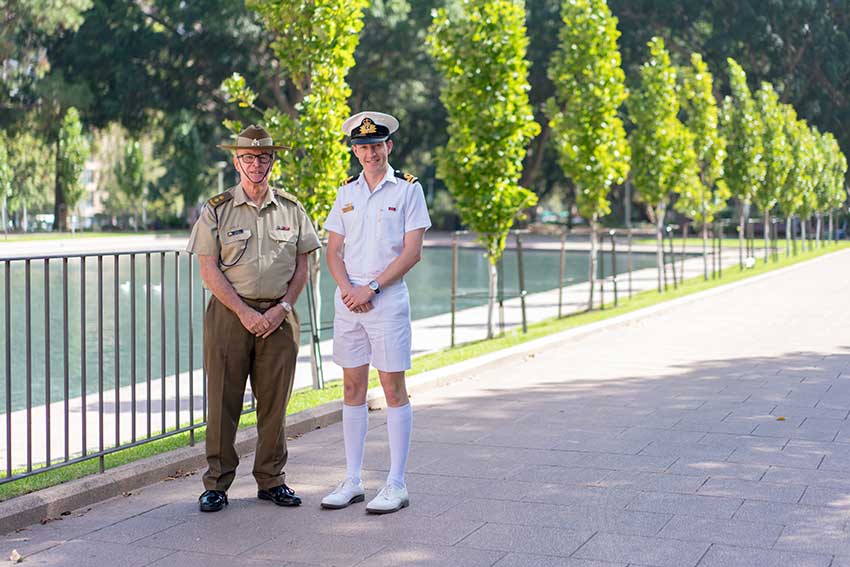
The Commonwealth-funded School Chaplaincy program allows schools to employ religiously affiliated school chaplains and the program has received widespread support across Australia from those school communities who have volunteered to be involved.
Given the above, the recent decision by the ACT Education Minister Yvette Berry to ban government schools from being involved in the program displays both ignorance and prejudice.
When justifying her decision to deny schools the right to employ faith-based chaplains the minister is reported as suggesting there is no place for religion in what are secular state schools. Ignored is that the ACT’s Education Act 2004, while stating that schools are secular, expressly allows schools to include religion in the school day.
The act states that “schools may include the study of different religions” in the curriculum as well as stating that if parents request religious education for their children then “the principal must ensure that reasonable time is allowed for their children’s religious education in that religion”.
Supporting the emotional and spiritual wellbeing of students
A further example of the minister’s ignorance is the suggestion that religiously affiliated chaplains compromise the secular nature of government schools by acting as advocates for their faith. While chaplains are free to offer general spiritual guidance and advice the ACT’s own departmental guidelines expressly warn against preaching.
The guidelines state chaplains must not attempt “to convert students to a religion or set of beliefs through proselytising or evangelising”. The guidelines also state chaplains must not initiate “faith discussions with a view to coercing or manipulating students to a particular view or spiritual belief”.
It should also be acknowledged that the School Chaplaincy program is voluntary for both schools and students and that the focus of the program is on supporting the emotional and spiritual wellbeing of students and not on religion as such.
A growing prejudice against religion – especially Christianity
The ACT Education Minister’s decision to ban school chaplains is just the most recent example of the increasing prejudice against religion, especially Christianity, and the growing threat of what Archbishop Fisher describes as “absolutist secularism”.
Unlike moderate secularism the more extreme, radical kind in the words of Archbishop Fisher seeks to “minimise the role of religion in every person’s life, to exclude it altogether from the public square, and to remove religious institutions from having any influence over government, law, media, schools, universities, the arts, workplaces, social customs, civil discourse, even the civic calendar”.
Examples of absolutist secularism include the argument that religious beliefs must not influence doctors’ decisions regarding abortion, schools wanting control over who they enrol and who they employ and aged care homes wanting control over admissions.
Other examples include air brushing the importance and on-going significance of Judeo-Christianity from the Australian national curriculum and imposing secular, Marxist inspired gender and sexuality programs on schools.
Separation of Church and State argument doesn’t add up
The denigration of religious events like Christmas and Easter with schools and local councils banning nativity scenes and Christmas carols further illustrate the extent to which secular critics are going to undermine religious faith.
One of the arguments used to restrict religious freedom is the belief that the Australian Constitution, similar to the American, guarantees the separation of church and state. As evidence secular critics often refer to section 116 of the Australian Constitution.
Section 116 states “The Commonwealth shall not make any law for establishing any religion, or for imposing any religious observance, or for prohibiting the free exercise of any religion, and no religious test shall be required as a qualification for any office or public trust under the Commonwealth”.
That such an argument is flawed is proven by a number of High Court decisions that conclude Section 116 refers specifically to limiting legislation and not to the broader issue of the separation between church and state. The fact that parliaments begin with the Lord’s Prayer and the preamble to the Australian Constitution refers to Almighty God also suggests religion and politics are not in opposition.
Actually, both are connected
While the admonition “Render unto Caesar the things that are Caesar’s, and unto God the things that are God’s” is also often used to argue for the separation between church and state, as argued by Lord Acton, Christ’s words mean the opposite.
Lord Acton in his speech The History of Freedom in Antiquity argues Christ’s response to the Pharisees, in fact, limited the action of political authorities as the power of the state is curtailed by the God given liberty and freedom granted to each individual.
That the church and state are intimately connected is also argued by the Perth-based academic Augusto Zimmerman who details how Australia’s legal and political institutions, largely inherited from Britain, can only be understood through a Christian perspective. When suggesting that the monarch was not the ultimate source of legal power the English jurists Sir Henry de Bracton argues “the king shall be under God and the law, for the law makes him king”.
Dr Kevin Donnelly is a Senior Research Fellow at the Australian Catholic University and author of How Political Correctness Is Destroying Education (Wilkinson Publishing).
